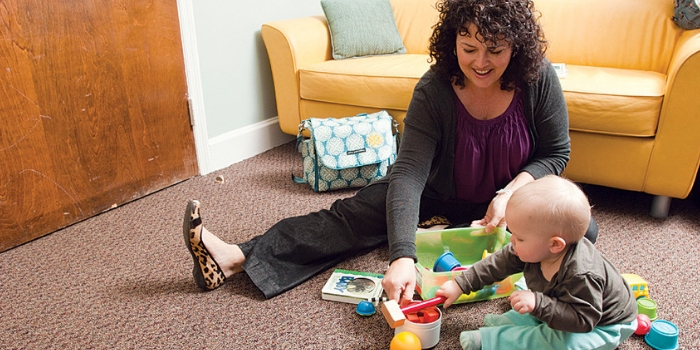The primary aim of the USC Neurodevelopmental Disorders Lab is to conduct high-quality research with young children and adolescents with neurodevelopmental disorders and their families to increase our understanding of factors that affect development within a family systems approach. We conduct our work in collaboration with colleagues at the University of South Carolina and at other institutions in the state and across the country.
We are interested in looking at multiple aspects of children’s development including attention, memory, language, social interactions, physiological responsivity, and behavior regulation. Additionally, we examine factors including adaptation and well-being in the parents of the children we work with to understand how family experiences affect young children. Our lab is family-friendly in terms of scheduling assessments around the preferences of each family, and we provide a brief written report of the child’s performance after each visit. For the infant study, we conduct most assessments in the family’s home in a friendly and supportive manner that allows young children and their families to feel comfortable.
Some of Our Recent Findings
Many of the families in our study choose to participate in electroencephalogram (EEG) testing. The EEG test measures neural processing when participants are presented with neutral and social stimuli. Heart rate, eye movement and brain waves are recorded while child participants watch images on a television screen. Using data from the EEG testing, we found that infants at increased risk of being diagnosed with autism spectrum disorder already display unique patterns of neural responses to familiar and novel faces and toys at 12 months of age. (Source)
Each year, we conduct a parent interview with our families called the Vineland Adaptive Behavior Scales‐II. The Vineland measures adaptive behaviors, which are the day-to-day activities that are necessary for individuals to get along with others and take care of themselves. Our research revealed distinct differences in the early emergence of adaptive behavior in Down syndrome compared to fragile X syndrome. Our findings suggest that young children with neurogenetic disorders may benefit most from syndrome‐specific interventions to both build and maintain adaptive skills. (Source)






